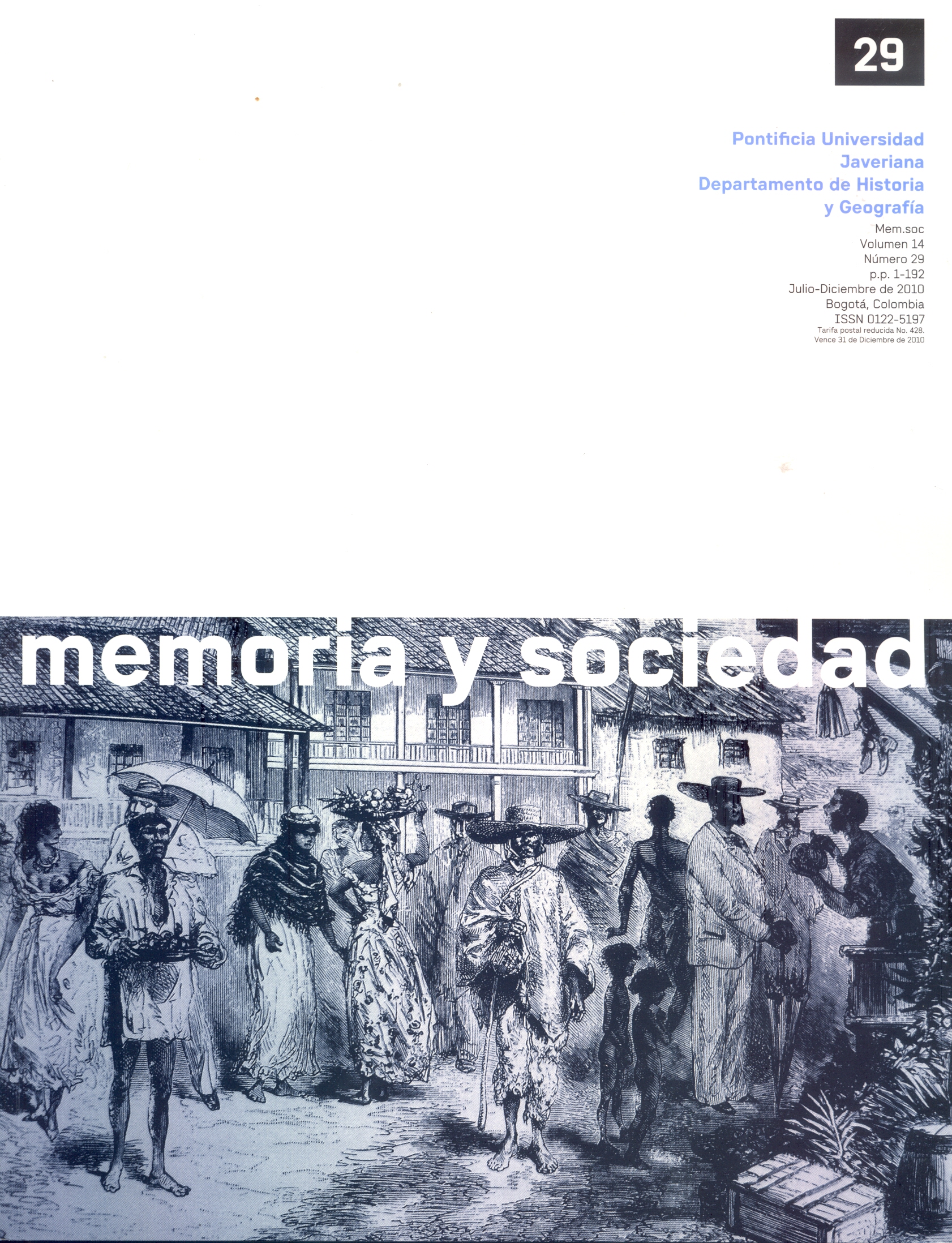Abstract
This article analyses the role played by the socio-familiar network of the Mosqueras and the power relations it sewn within the sociopolitical processes of the city of Popayan during the first years of the decade of 1830, after the dissolution of the “Gran Colombia” period. The main interest pursued by this study is the description and analysis of the network built by the Mosqueras and their clan – around different socio-political issues emerging back then in the recently formed “República Granadina” – that exerted a strong influence on the dynamics and socio-political practices of the city and the region.The journal Memoria y Sociedad is registered under a Creative Commons Attribution 4.0 International Public License. Thus, this work may be reproduced, distributed, and publicly shared in digital format, as long as the names of the authors and Pontificia Universidad Javeriana are acknowledged. Others are allowed to quote, adapt, transform, auto-archive, republish, and create based on this material, for any purpose (even commercial ones), provided the authorship is duly acknowledged, a link to the original work is provided, and it is specified if changes have been made. Pontificia Universidad Javeriana does not hold the rights of published works and the authors are solely responsible for the contents of their works; they keep the moral, intellectual, privacy, and publicity rights.
Approving the intervention of the work (review, copy-editing, translation, layout) and the following outreach, are granted through an use license and not through an assignment of rights. This means the journal and Pontificia Universidad Javeriana cannot be held responsible for any ethical malpractice by the authors. As a consequence of the protection granted by the use license, the journal is not required to publish recantations or modify information already published, unless the errata stems from the editorial management process. Publishing contents in this journal does not generate royalties for contributors.

